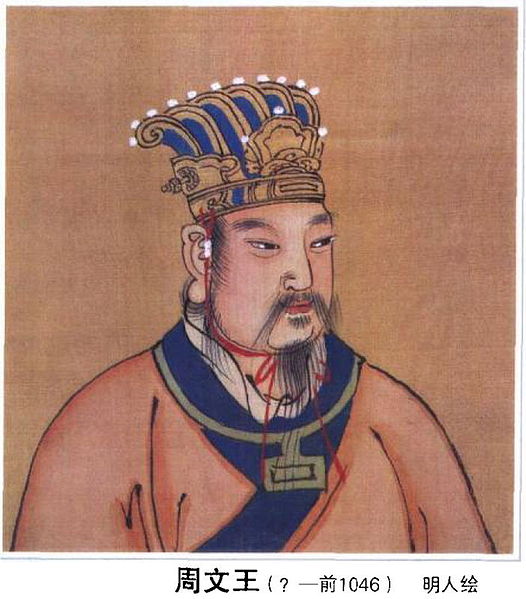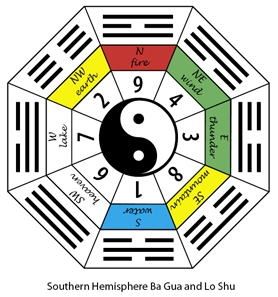I

I Ching is said to gauge the flow of yin and yang energies and offers the seeker an appropriate course of future action based on the interplay of positive and negative forces that shape our destinies. Yin Yang is a materialistic concept of Taoism, which dialectically describes every thing in the world has contrary sides and these contrary forces are interconnected and interdependent in the natural world. For example, the south of a mountain refers to Yang, similarly the north of a river, upper side of a leave, man and the sun, and conversely Yin refers to the north of a mountain, south of a river, reverse side of a leave, women and the Moon. Seen from the Tai Chi symbol, when the yang energy is at the peak time, the yin energy has gradually shown up. This is a profound philosophy saying that things at the worse will mend. Many branches of traditional Chinese medicine and philosophy adopted the Yin Yang theory as their primary guidelines.
In ancient times the holy sages made the I Ching thus: Their purpose was to follow the order of their nature and of fate. Therefore they determined the Tao of heaven and called it the dark and the light. They determined the Tao of the earth and called it the yielding and the firm. They determined the Tao of man and called it love and rectitude. They combined these three fundamental powers and doubled them; therefore in the Book of Chaneges a sign is always formed by six lines. – I Ching, Discussion of the Trigrams, 2.
The sixty four exagrams upon which the forecasts are based are each composed of two trigrams making a total of six lines. Each line is either broken (- -) and therefore yieldint or unbroken (––) and therefore firm. The broken ones are generally called Yin lines; thw unbroken are reffered to as Yang lines. The Eight Trigrams is a set of symbolic signs. Each of the eight trigrams consists of three signs, having the special meaning. The combination of the eight trigrams produces 64 exagrams which symbolize all the things and phenomenon in the nature and life.

The Eight Trigrams.
How the I Ching is capable of delivering these predictions has been a mystery for eons. Even the world renowned psychologist Carl Jung who was an avid prescriber of the I Ching, is said to have agreed with Confucius who reportedly said: “If I had had more years added to my life, I would devote them to studying the workings of the I Ching.”
The core philosophical question that the I Ching oracle address is: How can humans live in harmony with the Cosmos? Behind this question lie two profound and true realizations on the part of the ancient Chinese: (1) that human nature is only good, and (2) when we are in accord with our true nature, we are in harmony with the Cosmos. When we are in harmony with the Cosmos, our acts have the quality of being spontaneously correct, meaning appropriate and fitting, without any conscious intention.
The person who consults the I Ching over a period of time begins to understand which ideas or beliefs taken on during his education and conditioning, have created his misfortunes. The true purpose of the I Ching is to help him return to his true nature.
![]()
